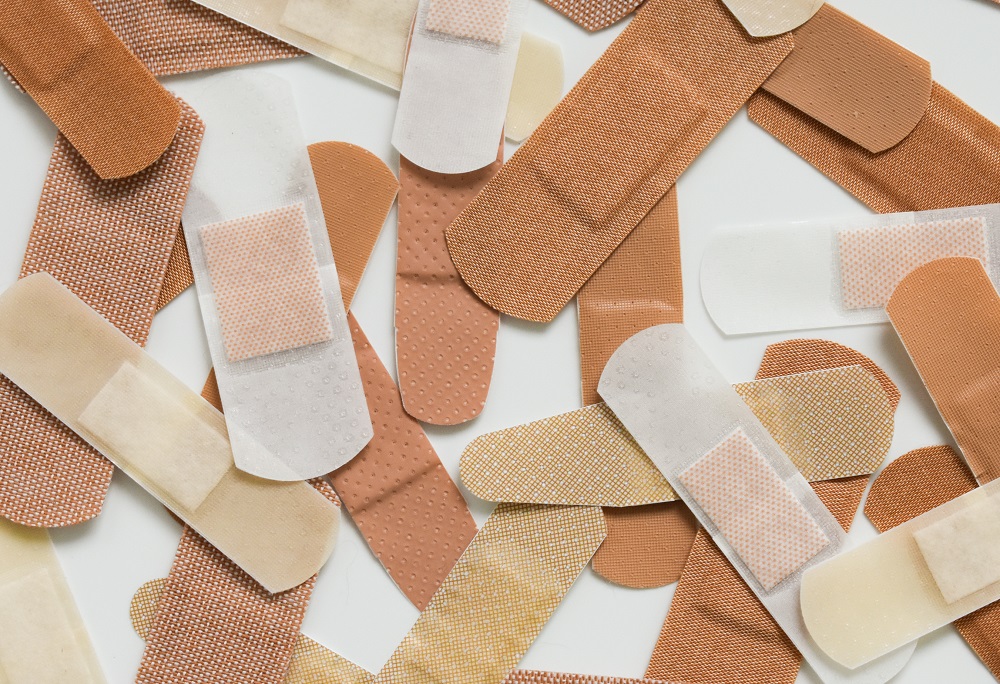Cellulitis is an infection of the skin caused by bacteria. It can occur anywhere on your body, and the area that is most commonly affected is your lower legs. Cellulitis usually occurs when bacteria enter the skin through a crack or break into your skin and invade the area under the skin. Skin infections can also occur when bacteria are introduced into the skin through insect, spider, or animal bites. There are different types of skin infections. Some skin infections may look raised and swollen, others may look like red bumps on the skin, while others may even have pus. In general, some symptoms of cellulitis may include:
- Redness to an area
- Swelling
- Warmth
- Tenderness
- Pain
With minor surface wounds, there are steps you can take at home to prevent a more serious infection such as cellulitis. However, if a wound is slow to heal or starts to have a lot of the symptoms of cellulitis listed above, you may need to go see a provider.
Skin infections are a common cause of hospitalization: up to 3.5 million hospitalizations in 2005. It is important to take good care of any wounds to prevent skin infections.
Risk Factors for Developing Skin Infections
Certain diseases or medical problems may increase your risk of having skin infections.
- Injury: cuts, fractures, burns, or scrapes give bacteria an entry point under your skin
- Weak immune system: conditions such as diabetes, leukemia, and HIV can weaken your immune system and make you more at risk for infection
- Skin conditions: conditions such as eczema and athlete’s foot can cause skin breaks and give bacteria an entry point
Hygiene and Prevention
- Wash hands with warm soap and water if you touch the wounded area.
- Properly clean the area with soap and water and cover any open cuts or scrapes with a bandage to prevent bacteria from entering the wound.
- If your skin is dry, use moisturizing creams, lotions, or ointments to prevent your skin from cracking.
- Avoid sharing personal hygiene items such as hairbrushes, razors, facecloths, and towels, and regularly keep your personal hygiene items clean.
- Avoid scratching open wounds.
- Avoid swimming in unclean or untreated water if you have an open wound.
Over the Counter Topical Antibiotics
You can buy antibiotic creams or ointments at the drugstore. They are commonly used on minor scrapes and wounds to prevent infections. Creams and ointments may be appropriate to use in different situations:
- Creams: Usually easier to apply and spread over a larger area. They are better to use in wet or “weeping” skin injuries.
- Ointments: Can be very greasy and give an oily feeling to the skin. Ointments should not be used if the wound is oozing. It is better to use an ointment on dryer wounds.
When you walk into a first aid aisle at your local drugstore, you may be overwhelmed with several different products. Some common items you may see are:
| Brand Name | Active Ingredients |
| Betadine First Aid Antibiotics + Moisturizer Ointment or Polysporin Ointment/Powder | Polymyxin B + Bacitracin |
| Gold Bond First Antibiotic Ointment | Polymyxin B + Bacitracin + Neomycin + Pramoxine |
| Neosporin Ointment | Polymyxin B + Bacitracin + Neomycin |
| Neosporin Plus Pain Relief Cream | Polymyxin B + Neomycin + Pramoxine |
Directions for use:
- Wash your hands before and after use
- Clean affected area and dry well before application
- Put a small amount and rub in gently
- Cover with dressing
These antibiotic creams and ointments can be used for minor cuts, scrapes, and burns. They generally work very similarly on wounds. If you have any allergic reactions, such as rash, to one of the ingredients, you should read the drug facts label to pick a product that does not contain it, and report your allergy to your provider. Remember that if using a product makes the wound look worse or more irritated, you should stop using it and see your provider.
When should you see your provider immediately?
- If you have a wound that has other things stuck in it
- If your wound is from an animal or human bite
- If you have signs of infection: fever, chills, continued or increased pain or swelling, or oozing fluid from the wound
- If a wound does not improve within 5 days
Authors: Bichuyen Winnie Trieu, PharmD and Radika Naidu, PharmD Candidate 2018
VA Palo Alto Health Care System
Topics in this story
More Stories
Black Lab Raisin reminds Veterans of life outside the hospital, brightens their lives with her endless capacity for joy.
VA remains open for business and is closely monitoring the Change Healthcare (CHC) cybersecurity incident.
Take the stress out of travel. My HealtheVet makes preparing for your time away easy with these five quick tips.







Thank you really much for your article, really helpful! I’ve read that honey can help you treat skin infections and other unwanted diseases, looking for opinions on this! Thank you!
I have been bothered by cellulitis now for a couple of months, one provider did wraps and a zinc ointment treatment 8 times,, trouble was I think, that the first time they did two different wraps, legs looked good so they didn’t continue, I believe a few more wraps would have stopped it, next I was given by a different provider calmoseptine ointment an d amoxicillan which helped a lot! but wasn’t completely gone, my third bout I am on now is continue to calomine and a stronger antibiotic called doxycycline….awaiting the results to see…..I know one thing…DO NOT stop treatment too quick! that stuff bounces right back!
I stopped counting my skin injuries while traveling the mountains a few years ago. I guess after a few years, you become so used to these things that it ain’t worth it anymore to bother with them. Sure, I believe I developed a few good behaviors for taking proper care of them, like you guys mentioned too. Found a few gems in here too, which I wasn’t aware of(will add them to my list). Cheers!